How to get rid of raccoons and keep them out of your trash
Here’s how to get rid of raccoons and stop them from coming back
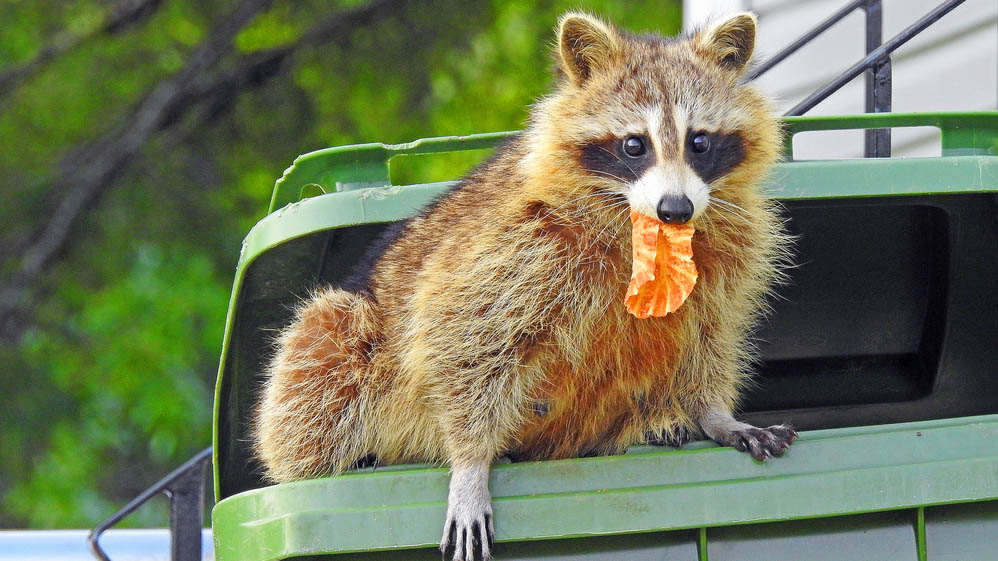
Here at Tom’s Guide our expert editors are committed to bringing you the best news, reviews and guides to help you stay informed and ahead of the curve!
You are now subscribed
Your newsletter sign-up was successful
Want to add more newsletters?

Daily (Mon-Sun)
Tom's Guide Daily
Sign up to get the latest updates on all of your favorite content! From cutting-edge tech news and the hottest streaming buzz to unbeatable deals on the best products and in-depth reviews, we’ve got you covered.

Weekly on Thursday
Tom's AI Guide
Be AI savvy with your weekly newsletter summing up all the biggest AI news you need to know. Plus, analysis from our AI editor and tips on how to use the latest AI tools!

Weekly on Friday
Tom's iGuide
Unlock the vast world of Apple news straight to your inbox. With coverage on everything from exciting product launches to essential software updates, this is your go-to source for the latest updates on all the best Apple content.

Weekly on Monday
Tom's Streaming Guide
Our weekly newsletter is expertly crafted to immerse you in the world of streaming. Stay updated on the latest releases and our top recommendations across your favorite streaming platforms.
Join the club
Get full access to premium articles, exclusive features and a growing list of member rewards.
Once you know how to get rid of raccoons, you can rest assured that your trash will be safe and sound come the morning. These nocturnal little mammals are renowned for causing mischief — taking up residence in your attic and chimney and tearing away at your flowers and trash.
As the sun sets, raccoons begin scavenging for their next meal. In the wild would consist of fruit, nuts, seeds and grubs, the latter of which you may notice evidence of in your grass and flowerbeds. However, they’re just as satisfied with our leftovers, and the prospect of a dry and safe nest in your decking or roof can only add to the attraction. That means no homes or trash cans are safe from raccoons, not unless you take precautions.
Luckily, there are steps you can take to deter these little bandits. Here, we will take you through how to get rid of raccoons and answer any questions you may have along the way.
Be sure to check out how to get rid of moles, if these pose a problem as well. If pigeons are an issue, here's 7 ways to get rid of pigeons in your yard. And 5 things not to do when repelling pests, according to experts.
How to get rid of raccoons in your yard
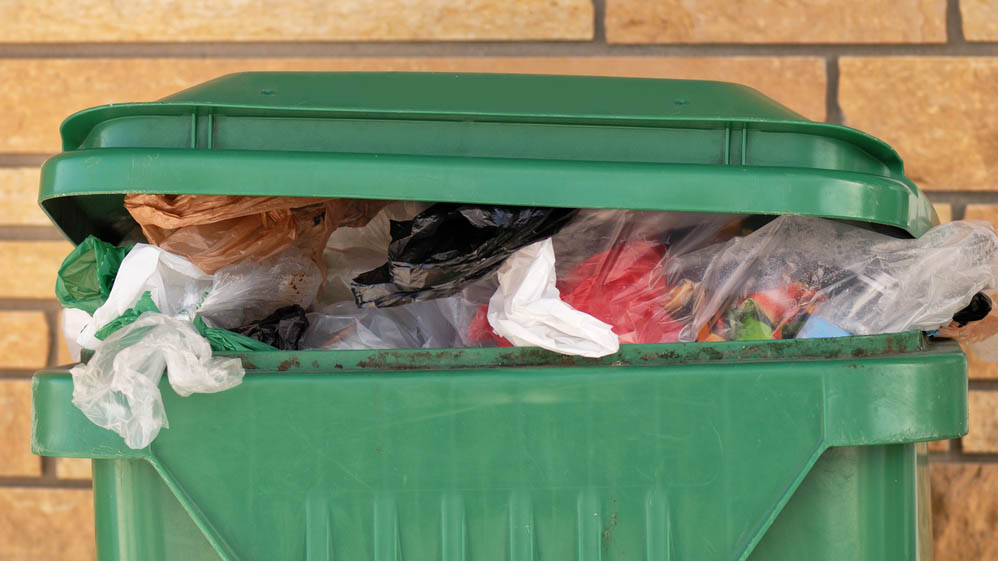
1. Secure your trash cans — One of the biggest attractions for raccoons is the food residue in your trash, so an overflowing trash can is like a smorgasbord. By keeping the lid shut and making the trash inaccessible, you’re cutting off a crucial food source. You can use trash cans with lockable lids or invest in a latch to keep it closed, such as the Strong Strap Stretch Latch ($32.48, Amazon).
You can also invest in trash bags which are scented to repel raccoons for an extra layer of defense. This can give your trash a minty fragrance as well. We recommend the Mint-X MintFlex Rodent Repellent Trash Bags ($34.99, Amazon).
2. Clean your trash cans regularly — It’s never at the top of our favorite chores list, but it’s essential that you take the time to clean your trash cans if you want to deter raccoons. Over time, spills and leaks from your trash bags will transfer to the can. If left alone, this will attract raccoons as well as rodents and insects from far and wide.
Get instant access to breaking news, the hottest reviews, great deals and helpful tips.
All you need is some dish soap and water to clean your trash cans, so set aside some time to do this. Make sure you give the area around your trash cans a once over as well and clear any residue from the walls and ground.
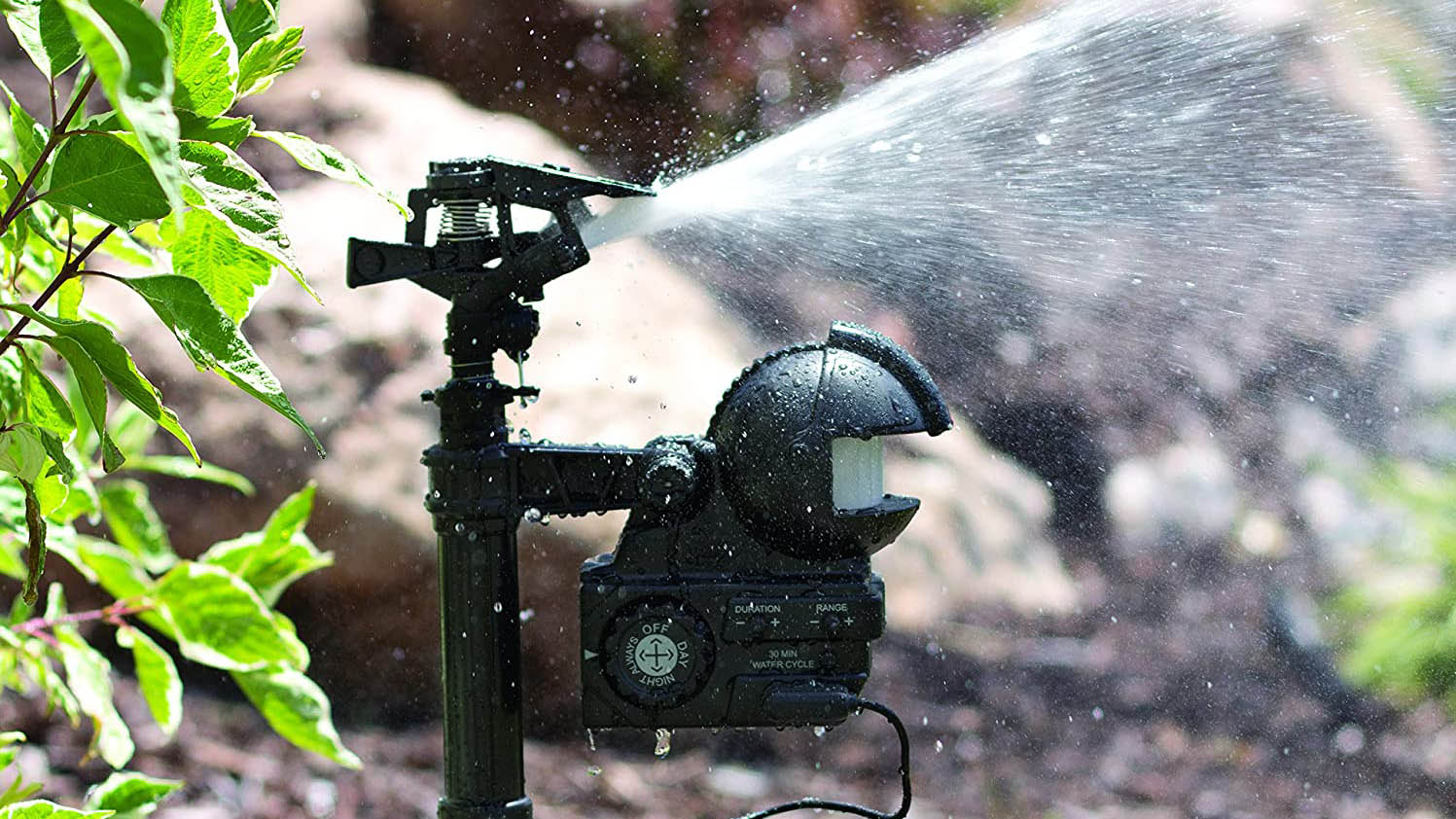
3. Ultrasonic sound, sprinklers and floodlights — There are all kinds of devices available from home department stores which will deter racoons. Ultrasonic sound is one option — these devices will emit a high-pitched noise when a racoon triggers the motion sensor. We can’t hear it ourselves, but the racoon won’t like it. We recommend the Broox Solar Animal Repeller ($44.98, Amazon).
A well-placed flood light can also help scare away raccoons as can a motion-activated sprinkler, such as the Orbit 62100 Yard Enforcer Motion-Activated Sprinkler ($54.99, Amazon). A combination of these methods will give you the best chance of putting off raccoons.
4. Home-made repellent — There are certain scents you can apply around your yard and trash cans to discourage raccoons as well. For a home-made solution, all you need to do is combine a couple of drops of dish soap with a gallon of water and add a bottle of hot sauce to the mix. (You can substitute a bottle of cayenne pepper powder for the hot sauce if available.) Then spray this around areas where the raccoons frequent and reapply as necessary.
Some recommend deterring raccoons with rags soaked in ammonia as well — with the intention that this mimics urine. However, care should be taken as ammonia is dangerous if it comes into contact with children as well as pets. These rags will need to be regularly replaced as well.
Pet urine can be used as a substitute and is another effective option. Although it won’t smell great, pet urine and anything which contains your pet’s scent, such as fur, will detract raccoons from your yard. This is because cats and dogs will fight raccoons in the wild and the scent effectively marks the territory. You should avoid any altercations between your pets and the raccoons, but that doesn’t mean you can’t use your pet to your advantage.
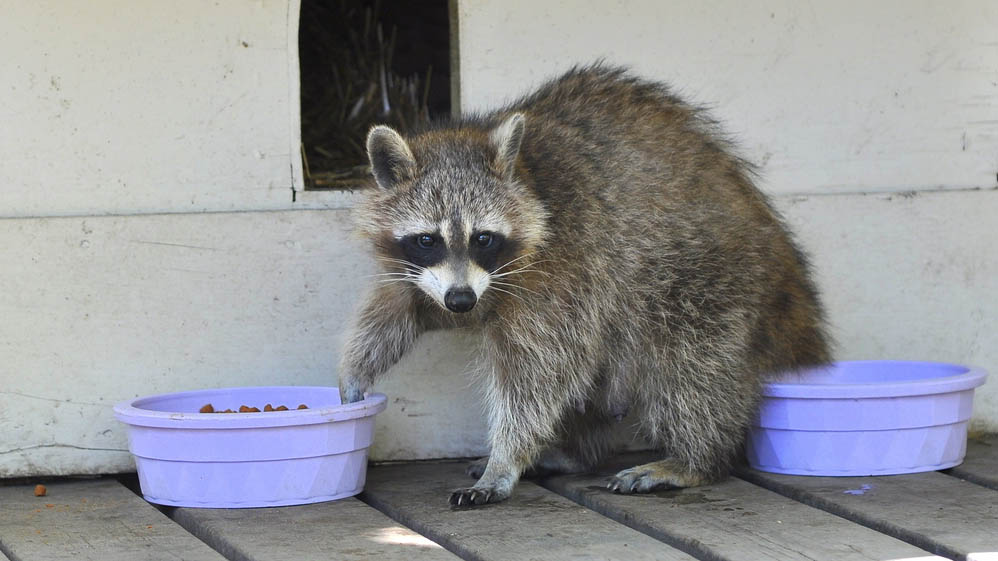
5. Remove other sources of food — Just because your trash cans are sealed doesn’t mean the raccoons’ food source is cut off. Raccoons will eat anything they can get their hands on, and that includes pet food, bird seed and grubs in your soil.
Remove anything that could constitute as food from your yard. Bring pet food indoors, move bird feeders out of reach, and remove any decomposing fruit from the ground. If you have fruit trees, try to pick the fruit as soon as possible and don’t leave it for any longer than necessary. The same goes for harvesting vegetables as well.
In extreme cases, you can also deter raccoons by limiting the number of grubs in your soil. Most home department stores will sell products designed to reduce the insect population in your yard, such as Spectracide Acer Plus Triazicide Insect Killer ($30.72, Amazon).
Don’t forget to cover up your fish pond as well — raccoons will eat fish when it’s easy to access.
6. Install fences — If you’ve got something in your yard which you can’t relocate, but which keeps attracting raccoons, such as a chicken coop, there’s always the option of using an electric fence. This surrounds the perimeter and sits just above ground level. It will gently shock the raccoon on contact, putting it off returning.
Just make sure there are no overhanging trees or alternative structures which could give a raccoon access.
How to get rid of raccoons in your home
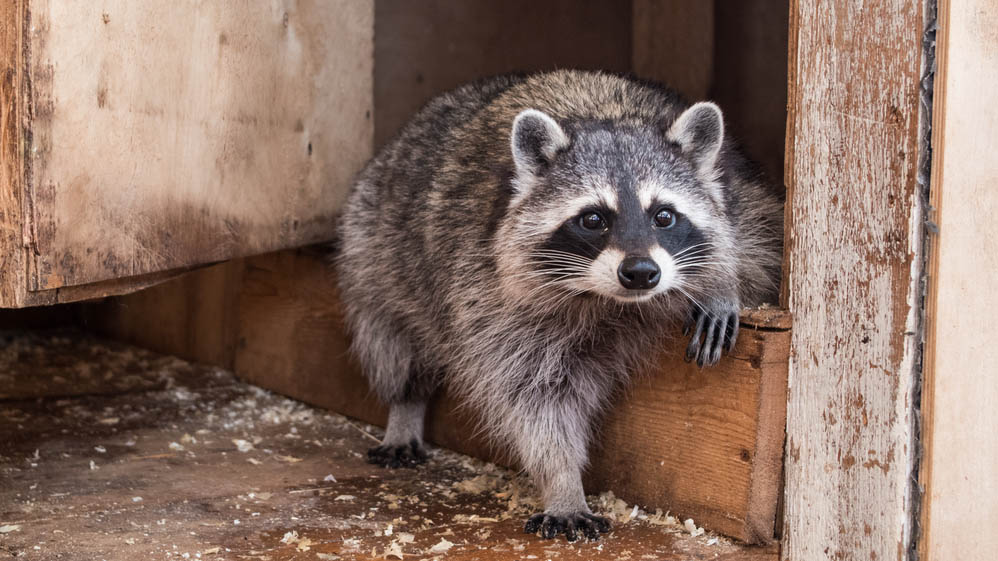
If you suspect raccoons are in your property, such as under the landing or in the attic, there are a couple of steps you should take.
1. Call a professional to get the raccoon removed safely and according to state laws. If relocation is allowed, a professional can help with this as well as with keeping a mother and her litter from separating.
You should not attempt to trap the raccoon yourself because they can be aggressive as well as carry disease. Depending on where the raccoon is located, this can be a dangerous task as well.
2. Assess the area and seal any gaps where the raccoons may have entered. If raccoons accessed your attic from a nearby tree, trim the branches to prevent another visit.
3. Remove any food and water sources from the area as well as any traces of the nest.
4. Make the area less appealing by lighting it up and applying scents which will deter raccoons.
You might also want to check out how to get rid of squirrels without hurting them or how to get rid of fruit flies and how to get rid of fleas quickly if you find any at home. Knowing how to get rid of maggots is useful as well if you spot them in your garbage.

Katie Mortram used to be a Homes Editor for Tom's Guide, where she oversaw everything from kitchen appliances to gardening tools, as well as smart home tech. Specializing in providing expert advice for cleaning and home manintenance, she now works as Household Advice Editor for Good Housekeeping.
 Club Benefits
Club Benefits










